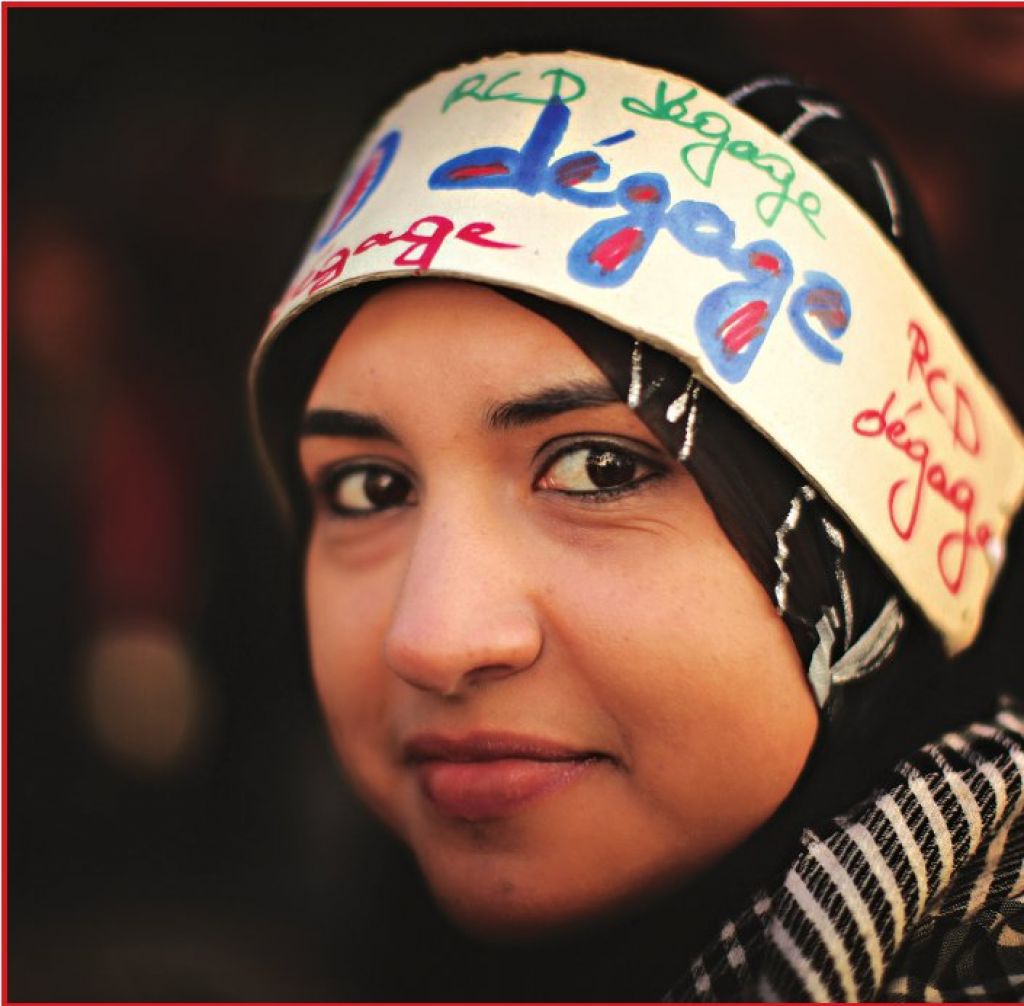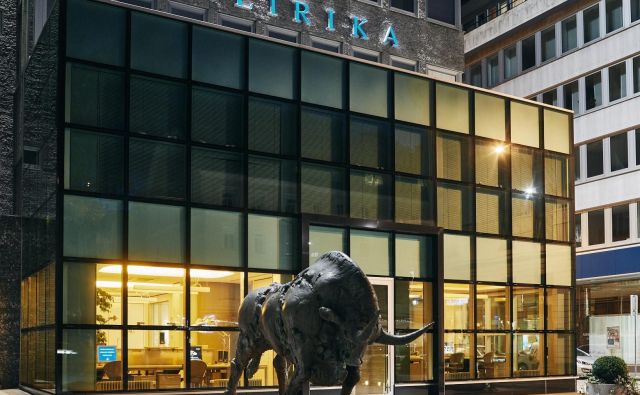Long dismissed in the Arab world as a neutered, proWestern, Frenchified country, not to mention small, Tunisia now stands tall, many of its 10 million people proud that their revolution became an example for other countries.
But there is another source of Tunisian wisdom that may hold inspiration for at least half the populations across North Africa and the Middle east: a long tradition of women's rights that goes well beyond anything else in the region.
Women have been more visible than ever before in the discontent rippling across the Arab world. As unrest spreads to places like Iran, where women can still be stoned to death for adultery, and Bahrain, just across the bridge from Saudi Arabia, where they are still not allowed to drive, let alone vote, the female factor in this new Arab dawn may yet prove to be one of the most powerful and fundamental ones in reshaping the region.
Khadija Cherif, secretary general of the international Federation of human Rights and a former president of the Tunisian Association of
Democratic Women, puts it this way: "Arab women have the most to gain from a new century of Arab enlightenment."
"We hope that our experience in Tunisia can be an inspiration," said Ms. Cherif, who was one of the many women braving police batons and militias in the monthlong demonstrations that eventually caused the former president, Zine El-Abidine Ben Ali, to flee to Saudi Arabia on January 14.
Tunisian women were among the first in the Arab world to obtain the right to vote, shortly after independence in 1956. They secured abortion rights the same year American women did and have a greater share of seats in Tunisia's Parliament than women have in the French Parliament.
Polygamy is banned, marriage conditional on female consent and miniskirts as common a sight as the Muslim head scarf in Tunis's cityscape. Perhaps most importantly, Tunisian women are well educated: their literacy rate, at 71 percent according to Unesco, is higher than that of women in any other North African country. They outnumber men among university graduates and are catching up among judges and medical doctors.
Mr. Ben Ali loved to cite these statistics. For three decades, women's rights were his bulwark against Islamists at home and his alibi with Western governments inquiring about human rights abuses.
"The men and women marching for democracy last month were all the children and grandchildren of women who had grown up with an education and a sense of their rights," said Fatma Bouvet de la Maisonneuve, a Tunisian psychiatrist who lives in Paris and has been supporting the uprising in her home country with Facebook postings and articles in the French news media.
"It 's no coincidence that the revolution first started in Tunisia, where we have a high level of education, a sizable middle class and a greater degree of gender equality," she said. "We had al l the ingredients of democracy but not democracy itself. That just couldn't last."
But if Arab women have more to gain from a greater degree of political freedom, they also have more to lose. The big unknown in Tunisia, Egypt and beyond is how fundamentalist - and how popular - Islamist groups who in the past were no friends of women's rights still are. "You can't ever take rights for granted," Ms. Cherif warned.
"The Tunisian movement was neutralized and kept in the wilderness for 20 years and they had a very moderate discourse," said Eric Goldstein, deputy director for the Middle East and North Africa at Human Rights Watch. "Now that they are resuming their political activities people are nervous. It's not guaranteed that they will maintain their tolerance, especially on women's rights."
And even the Tunisian Islamists, he added, speak for many women. Crowds of women in traditional Islamic dress welcomed the longexiled leader of Tunisia's Ennahda movement, Rachid Ghannouchi, upon his return to the country January 30.
But , as Radhia Nasraoui, a prominent Tunisian human rights lawyer, pointsout, Mr. Ghannouchi has felt compel led to repeatedly and publicly pledge to safeguard women's rights.
"It may be tactical, but the fact that hefeels he has to talk this way is a prettygood indication that wanting to roll backwomen r ights is no way to ga in suppor t in Tunisia right now," Ms. Nasraoui said.
Ms. Nasraoui knows the Islamist movement well. She defended many ofits members under Mr. Ben Ali's regime."I defend the worst of them, those whosewives wear black from head to toe," she said. "Not because I agree with their philosophy but because I believe in theirright not to be tortured and their right to freedom of expression."
Ms. Nasraoui also knows how coura-geous Tunisian women are. When Mr. Ben Ali's security forces intimidated her clients, pressing them to use other lawyers, it was mostly men who were cowed, she said. "The women did not give in," she said. She was among thousands marching recently in defense of separating the state and the mosque and preserving the country's progressive civilrights code forwomen.
Among those marching were veiled women and a good contingent of men."Perhaps soon the country will be ready for a woman leader," she said. "The women are certainly ready."
A New Dawn for Arab Women*
At the height of the egyptian uprising, protesters drew encouragement and practical advice from Tunisian tweets and Facebook messages: "We did it, you can do it, too!" read one. Another advised: "Put vinegar or onion under your scarf for tear gas."
Objavljeno
04. marec 2011 16.35
Posodobljeno
04. marec 2011 16.35
 Tiskane izdaje
Tiskane izdaje























